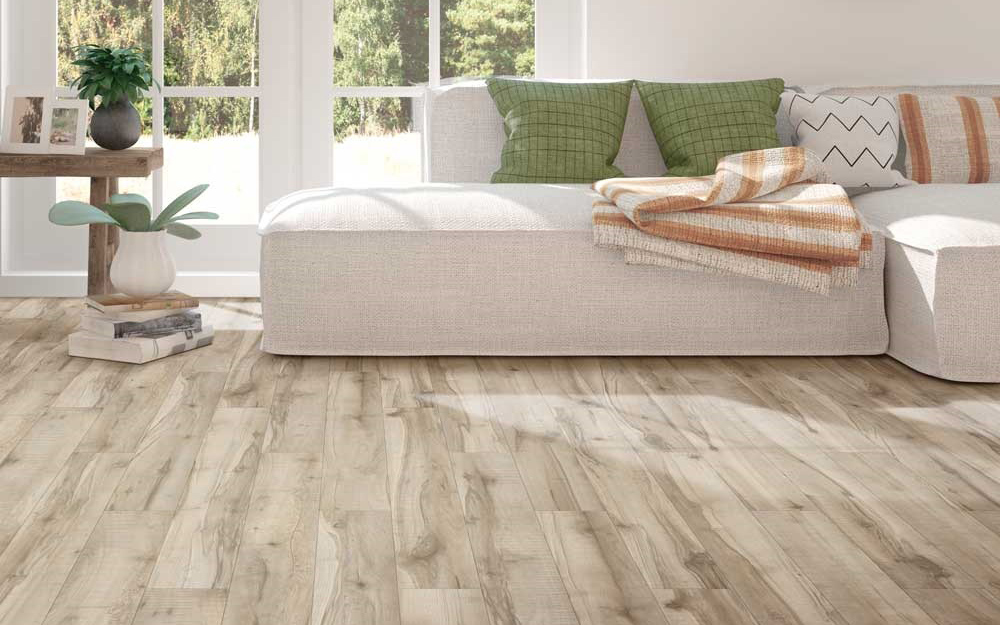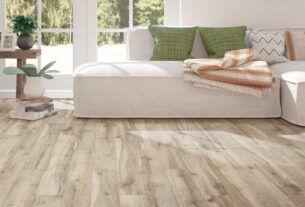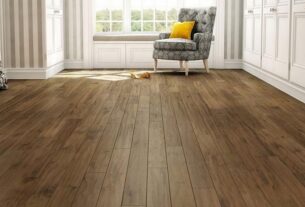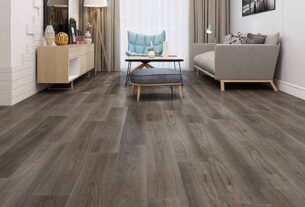When it comes to home renovation and interior design, sustainability is no longer just a buzzword—it’s a priority. Homeowners are becoming increasingly conscious of the materials they use, aiming to make eco-friendly choices that benefit the environment without compromising on style or functionality. Vinyl flooring Dubai, long known for its durability and versatility, has evolved in recent years to meet these sustainability demands. Today, eco-friendly vinyl flooring options offer a combination of beauty, practicality, and environmental responsibility.
What Makes Vinyl Flooring Eco-Friendly?
Traditional vinyl flooring, made primarily from polyvinyl chloride (PVC), has faced criticism due to the environmental concerns surrounding its production and disposal. However, the vinyl industry has made significant strides in improving the sustainability of this material, offering more eco-friendly options for conscious consumers. The eco-friendly vinyl flooring of today focuses on reducing the environmental impact during both the manufacturing process and throughout the lifecycle of the product.
Here are some of the key aspects that make modern vinyl flooring more sustainable:
Use of Recycled Materials: Many eco-friendly vinyl flooring options are now made using recycled materials. Manufacturers are incorporating post-consumer waste (such as discarded vinyl products) into the production of new vinyl flooring. By reusing these materials, manufacturers reduce the need for new raw materials, helping to lower the carbon footprint of production.
Low VOC Emissions: Volatile organic compounds (VOCs) are chemicals that can be released into the air from flooring products and are harmful to both health and the environment. Many eco-friendly vinyl flooring options are designed with low or no VOCs, ensuring a healthier indoor air quality in your home. This is especially important for families with young children or individuals with respiratory conditions.
Durability and Longevity: One of the best ways to be environmentally friendly is to invest in long-lasting products that don’t need to be replaced often. Eco-friendly vinyl flooring options are known for their durability, resistance to wear and tear, and ability to withstand high traffic. This long lifespan means less frequent replacements and fewer materials going to waste, which helps reduce your overall environmental impact.
Recyclability: In the past, the disposal of vinyl flooring products has been a concern due to their limited recyclability. However, modern eco-friendly vinyl flooring is often designed with recyclability in mind. Some products can be returned to the manufacturer for recycling, helping to keep the material out of landfills and reducing waste.
Energy-Efficient Manufacturing: As with many industries, the flooring industry has made strides in reducing energy consumption during the manufacturing process. Eco-friendly vinyl flooring products are often produced using more energy-efficient techniques, which reduces the carbon emissions associated with their production.
Sustainable Vinyl Flooring Options
Now that we know what makes vinyl flooring eco-friendly, let’s take a closer look at some of the sustainable options available in the market.
Recycled Vinyl Flooring
Recycled vinyl flooring is made from post-consumer and post-industrial waste. This process reduces the need for virgin PVC and minimizes the environmental impact of production. By using recycled materials, manufacturers can create high-quality vinyl flooring that retains the same durability and aesthetic appeal as traditional options. Many brands offer collections made entirely from recycled vinyl, which helps to reduce waste while maintaining a beautiful look.
Luxury Vinyl Tile (LVT) with Sustainable Features
Luxury Vinyl Tile (LVT) is a popular option for homeowners seeking durable, stylish flooring. Many LVT products are now designed with sustainability in mind. Some feature a wood-plastic composite (WPC) or stone-plastic composite (SPC) core, which is often made from recycled materials, making it an eco-friendly option. Additionally, LVT typically has a longer lifespan, which means fewer replacements and less waste.
PVC-Free Vinyl Flooring
For those seeking a truly eco-friendly option, PVC-free vinyl flooring is an excellent choice. Traditional vinyl flooring is made from polyvinyl chloride (PVC), a material that has been criticized for its environmental impact. However, PVC-free vinyl is manufactured using alternative materials like thermoplastic elastomers (TPE) and polyolefin. These materials are not only more sustainable but also safer for the environment. PVC-free vinyl flooring provides the same durability, water resistance, and ease of maintenance as traditional vinyl but without the harmful chemicals.
Vinyl Flooring with Low-VOC and Non-Toxic Finishes
Many modern vinyl flooring options are now available with low-VOC or even zero-VOC finishes. These finishes are free from harmful chemicals that contribute to indoor air pollution and can be harmful to human health. By choosing vinyl flooring with these environmentally friendly finishes, homeowners can create healthier living spaces for themselves and their families while still enjoying the benefits of durable and easy-to-maintain flooring.
Benefits of Eco-Friendly Vinyl Flooring
Choosing eco-friendly vinyl flooring not only helps you create a greener home but also offers several practical benefits:
Affordability: Eco-friendly vinyl flooring tends to be more affordable than other sustainable flooring options like hardwood or stone. It offers a cost-effective way to achieve a stylish, environmentally friendly interior.
Ease of Maintenance: Vinyl flooring is known for its low-maintenance properties. It resists stains, is easy to clean, and is durable enough to handle high traffic without showing wear. This makes it an excellent choice for homes with children or pets.
Wide Variety of Styles: Eco-friendly vinyl flooring comes in a variety of styles, including wood-look, stone-look, and abstract designs. With the latest advancements in printing technology, vinyl can replicate the look of natural materials, allowing you to achieve the aesthetic of high-end materials without the environmental cost.
Water Resistance: Vinyl flooring is naturally water-resistant, making it ideal for areas prone to moisture, such as kitchens, bathrooms, and basements. Eco-friendly options maintain this important feature while being produced in a sustainable manner.
How to Choose Eco-Friendly Vinyl Flooring
When choosing eco-friendly vinyl flooring for your home, it’s important to consider several factors:
- Material Certification: Look for certifications like FloorScore or Greenguard Gold, which ensure low VOC emissions and a commitment to sustainable practices.
- Manufacturer Transparency: Choose manufacturers that are transparent about their materials and production processes. Brands that prioritize sustainability often provide detailed information about their products’ environmental impact.
- Style and Durability: Consider your aesthetic preferences and the longevity of the flooring. Eco-friendly options are available in a wide range of designs, so you can choose a style that complements your home while ensuring it lasts for years.
Conclusion
Eco-friendly vinyl flooring has come a long way in recent years, offering homeowners a stylish, durable, and sustainable flooring solution. Whether made from recycled materials, designed with low-VOC finishes, or completely PVC-free, these flooring Dubai options allow you to make a positive impact on the environment without sacrificing quality or aesthetics. By choosing eco-friendly vinyl, you can create a beautiful and sustainable home, all while contributing to a greener future for our planet.





